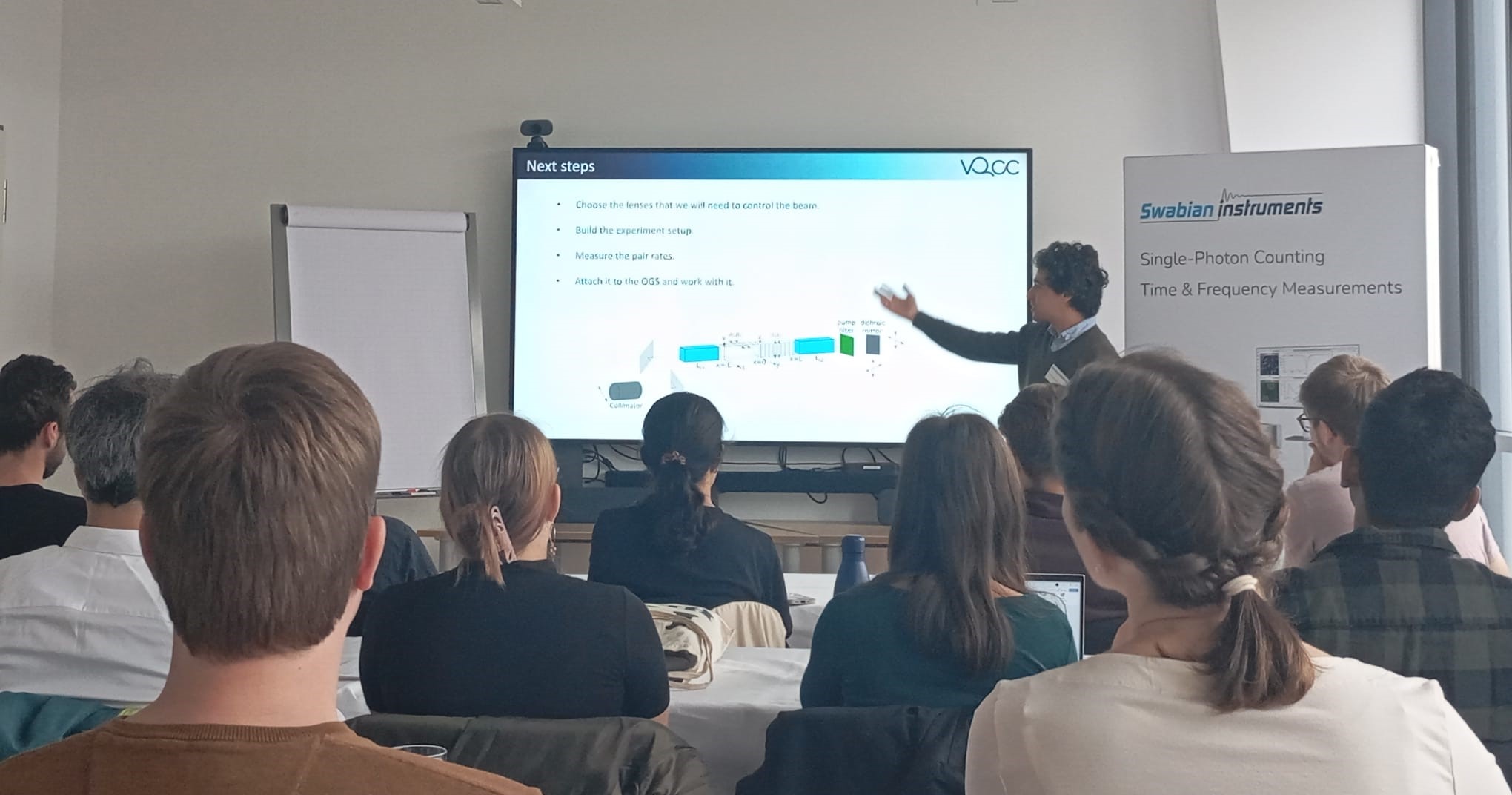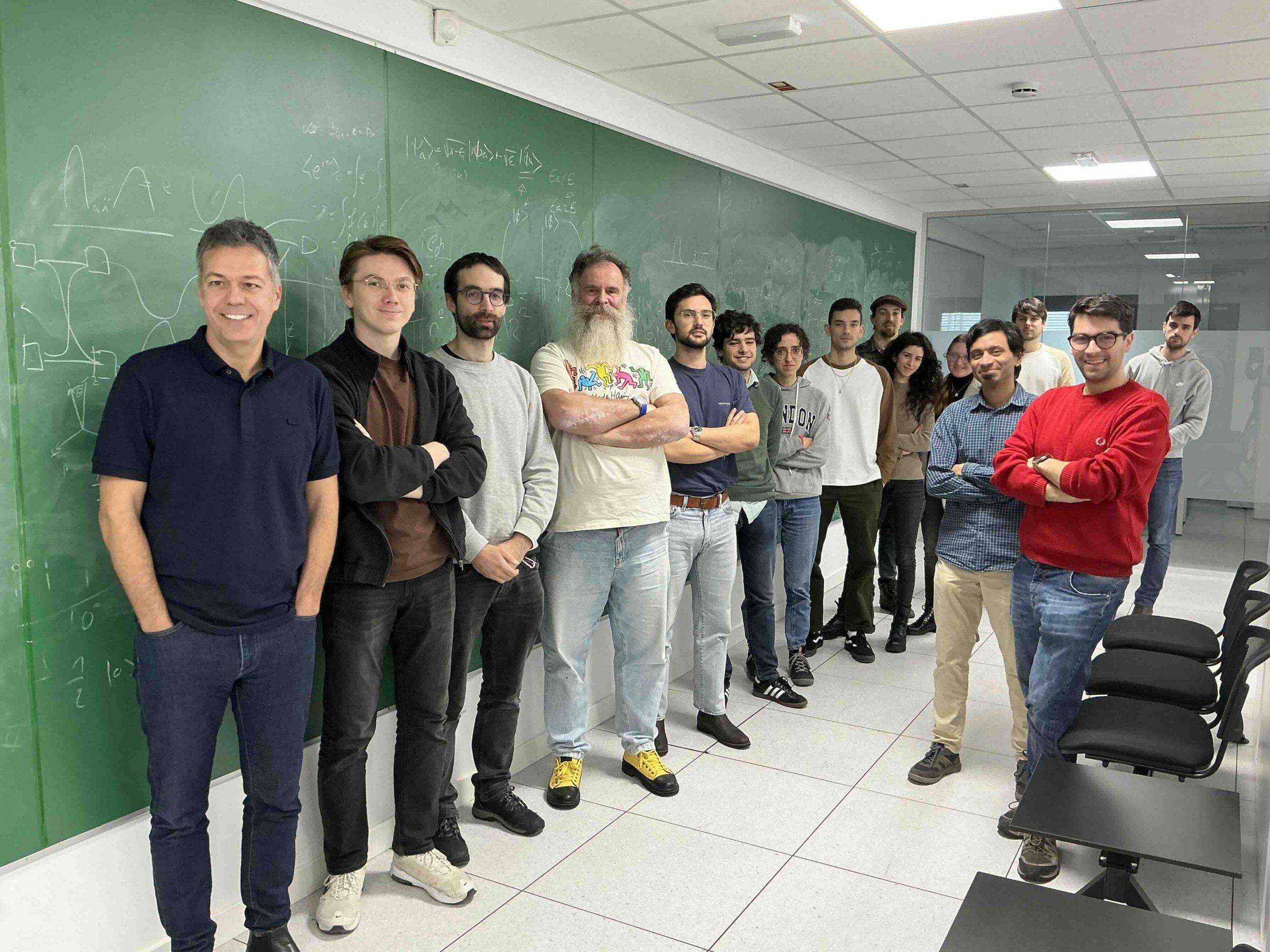The VQCC at the Workshop
on Quantum Technologies for young researchers.

Two researchers from the VQCC attended the Quantum Technologies for Young Researchers (QTYR) Workshop celebrated in Madrid, from the 4th to the 7th of July, 2023. The event was held in the central campus of the National Research Council (CSIC). QTYR23 is a conference targeted to scientists in the early stages of their career working in different branches of Quantum Science. It also includes invited talks given by leading experts in the field. The workshop is organized by the PhD and Young Scientists in Quantum Technologies Network (PYSQT) and falls under the umbrella of the UIMP Master’s degree in Quantum Technologies participated by CSIC and various universities. The main idea is to gather young scientists and provide a platform to share their research in a friendly and inclusive environment. Postdocs, PhD and Master students are encouraged to participate.
The program covers a wide range of topics, including quantum computing, quantum information, quantum sensing, and quantum hardware, among others. It includes keynote speeches, contributed talks, poster presentations, a quantum computing hands-on tutorial, and a panel discussion on the bridges between academia and companies in quantum technologies.
Vaisakh Mannalath, a predoctoral researcher at the VQCC, gave a talk on multiparty entanglement routing in quantum networks. Entanglement routing deals with the problem of establishing entangled links between distant users in a network. Vaisakh presented his recent results, which demonstrate how to extract maximally entangled states from a quantum state shared by a network of users, by using just local measurements.
Dr. Víctor Zapatero, on the other hand, presented his latest research on a fully passive approach to quantum key distribution. This promising alternative, which is based on eliminating all optical modulators and random number generators from the QKD hardware, may confer QKD systems an enhanced simplicity, immunity to modulator side channels, and potentially higher repetition rates. Very recently, Víctor has led the security analysis of a pioneering demonstration of a passive decoy-state BB84 protocol, carried out by experimentalists from the University of Science and Technology of China.















